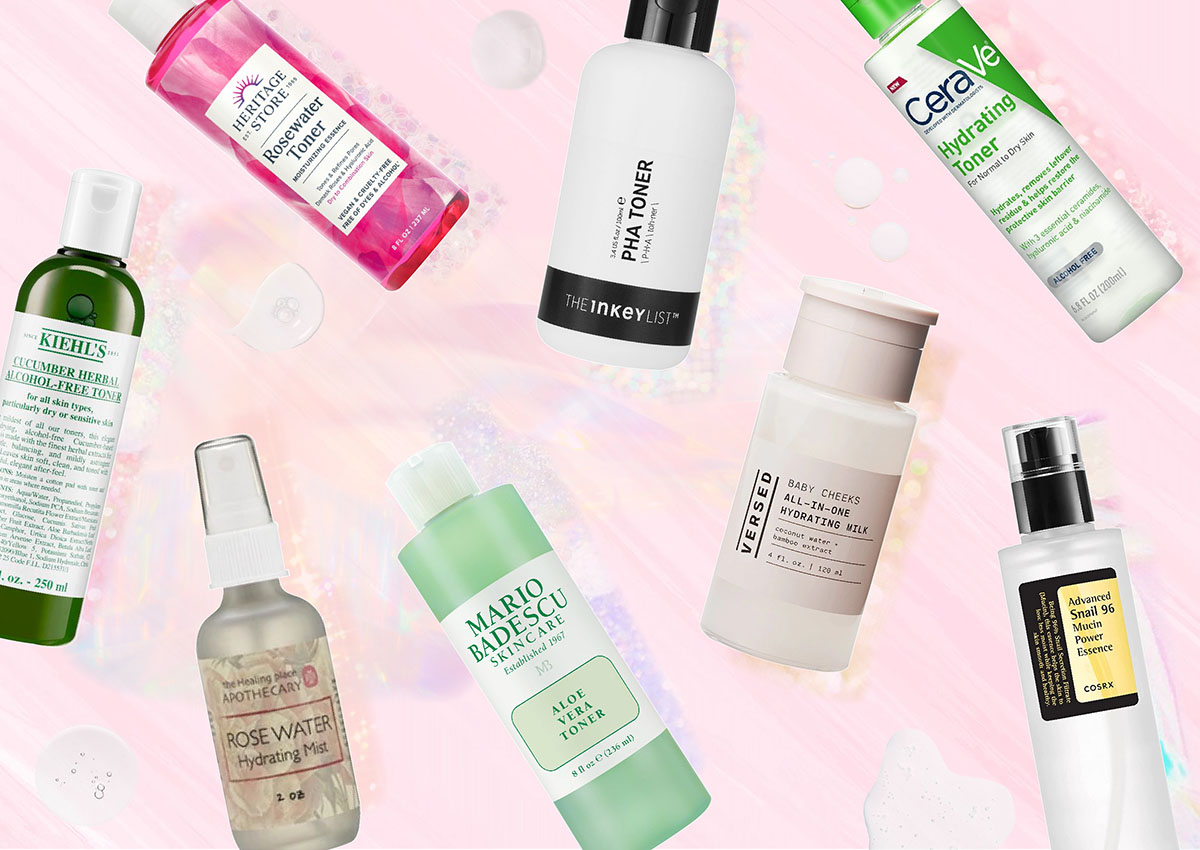
Hydrating toner is a skincare essential that often gets overlooked. But what exactly makes it so special? Hydrating toners help balance your skin's pH levels, remove leftover impurities after cleansing, and prep your face for better absorption of serums and moisturizers. They are packed with ingredients like hyaluronic acid, glycerin, and aloe vera, which provide a burst of moisture, leaving your skin feeling refreshed and revitalized. Whether you have dry, oily, or combination skin, there's a hydrating toner out there for you. Ready to learn more? Here are 30 facts about hydrating toner that will change the way you think about your skincare routine!
What is Hydrating Toner?
Hydrating toner is a skincare product designed to balance the skin's pH levels while providing moisture. It preps the skin for better absorption of subsequent products like serums and moisturizers. Here are some fascinating facts about hydrating toner.
-
Balances pH Levels: Hydrating toner helps restore the skin's natural pH balance, which can be disrupted by cleansers. A balanced pH is crucial for maintaining healthy skin.
-
Preps Skin for Moisturizers: By hydrating and softening the skin, toner allows moisturizers and serums to penetrate more effectively. This maximizes the benefits of your skincare routine.
-
Removes Residual Impurities: Even after cleansing, some impurities can remain on the skin. Hydrating toner helps remove these leftover traces, ensuring a cleaner surface.
-
Minimizes Pores: Regular use of hydrating toner can help tighten and minimize the appearance of pores. Smaller pores can lead to smoother, more even skin texture.
-
Soothes Irritation: Many hydrating toners contain soothing ingredients like aloe vera or chamomile. These can help calm irritated or sensitive skin.
Ingredients in Hydrating Toner
The effectiveness of a hydrating toner largely depends on its ingredients. Let's explore some common components found in these toners.
-
Hyaluronic Acid: Known for its incredible moisture-retaining properties, hyaluronic acid can hold up to 1,000 times its weight in water. This makes it a powerful hydrating ingredient.
-
Glycerin: A natural humectant, glycerin draws moisture from the air into the skin. It helps keep the skin hydrated and soft.
-
Aloe Vera: Aloe vera is famous for its soothing and healing properties. It provides hydration while calming irritated skin.
-
Rose Water: Rose water has anti-inflammatory properties that can reduce redness and irritation. It also adds a pleasant fragrance to the toner.
-
Green Tea Extract: Rich in antioxidants, green tea extract helps protect the skin from environmental damage. It also has anti-inflammatory properties.
Benefits of Using Hydrating Toner
Using a hydrating toner can offer numerous benefits for your skin. Here are some key advantages.
-
Enhanced Hydration: Hydrating toners provide an extra layer of moisture, which is especially beneficial for dry or dehydrated skin.
-
Improved Skin Texture: Regular use can lead to smoother, more refined skin texture. This is due to the toner's ability to tighten pores and remove impurities.
-
Better Absorption of Products: Hydrated skin absorbs other skincare products more effectively. This means your serums and moisturizers will work better.
-
Reduced Oiliness: Some hydrating toners can help control excess oil production. This can be particularly helpful for those with oily or combination skin.
-
Anti-Aging Benefits: Ingredients like hyaluronic acid and antioxidants can help reduce the appearance of fine lines and wrinkles.
How to Use Hydrating Toner
Using hydrating toner correctly can maximize its benefits. Here are some tips on how to incorporate it into your skincare routine.
-
Apply After Cleansing: Use hydrating toner immediately after cleansing your face. This helps remove any residual impurities and preps your skin for the next steps.
-
Use a Cotton Pad: Soak a cotton pad with toner and gently swipe it across your face. This ensures even distribution and helps remove any leftover dirt.
-
Pat It In: Alternatively, you can pour a small amount of toner into your hands and gently pat it into your skin. This method can be more hydrating.
-
Follow with Serum and Moisturizer: After applying toner, follow up with your favorite serum and moisturizer. This locks in the hydration and enhances the effectiveness of your skincare products.
-
Use Twice Daily: For best results, use hydrating toner twice a day—once in the morning and once at night.
Myths About Hydrating Toner
There are several misconceptions about hydrating toner. Let's debunk some of these myths.
-
Toner is Only for Oily Skin: Many people believe toner is only for oily skin, but hydrating toner is suitable for all skin types. It provides essential moisture and balances pH levels.
-
Toner Dries Out Skin: Some think toner can be drying, but hydrating toners are formulated to add moisture, not strip it away.
-
Toner is Unnecessary: Some argue that toner is an unnecessary step, but it plays a crucial role in prepping the skin and enhancing the effectiveness of other products.
-
All Toners are the Same: Not all toners are created equal. Hydrating toners are specifically designed to add moisture, unlike astringent toners that focus on oil control.
-
Toner Causes Breakouts: Properly formulated hydrating toners should not cause breakouts. In fact, they can help soothe and calm irritated skin.
Choosing the Right Hydrating Toner
Selecting the right hydrating toner can make a significant difference in your skincare routine. Here are some tips to help you choose.
-
Know Your Skin Type: Understanding your skin type is crucial. Choose a toner that addresses your specific needs, whether it's dryness, sensitivity, or oiliness.
-
Check the Ingredients: Look for hydrating ingredients like hyaluronic acid, glycerin, and aloe vera. Avoid toners with alcohol, as they can be drying.
-
Read Reviews: Reading reviews can provide insights into how a toner performs. Look for feedback from people with similar skin types.
-
Patch Test: Always do a patch test before using a new product. This helps ensure you won't have an adverse reaction.
-
Consult a Dermatologist: If you're unsure which toner to choose, consult a dermatologist. They can recommend products based on your skin's needs.
Final Thoughts on Hydrating Toner
Hydrating toner isn't just a skincare step, it's a game-changer. Packed with moisture-boosting ingredients, it helps keep skin plump and glowing. Regular use can balance your skin's pH, reduce redness, and prep your face for better absorption of serums and moisturizers. Plus, it's versatile—suitable for all skin types, from oily to dry.
Remember, not all toners are created equal. Look for ones with natural ingredients like aloe vera, hyaluronic acid, and glycerin. Avoid those with alcohol, which can dry out your skin.
Incorporating a hydrating toner into your routine can make a noticeable difference. Your skin will thank you with a healthier, more radiant appearance. So, next time you're shopping for skincare, don't skip the toner. It's a small step with big benefits.
Was this page helpful?
Our commitment to delivering trustworthy and engaging content is at the heart of what we do. Each fact on our site is contributed by real users like you, bringing a wealth of diverse insights and information. To ensure the highest standards of accuracy and reliability, our dedicated editors meticulously review each submission. This process guarantees that the facts we share are not only fascinating but also credible. Trust in our commitment to quality and authenticity as you explore and learn with us.


